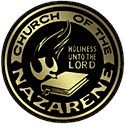Power of Prayer
You know the value of prayer; it is precious beyond all price. Never, never neglect it.
-- Buxton, Thomas
In 1808, Buxton's Hanbury family connections led to an appointment to work at the brewery of Truman, Hanbury & Company, in Brick Lane, Spitalfields, London. In 1811, he was appointed a partner in the business, now renamed Truman, Hanbury, Buxton & Co; he later became sole owner of the company.
Although he was a member of the Church of England, Buxton attended Friends meetings with the Gurneys and became involved in the social reform movement being led by Friends. He helped raise money for the weavers of London who were forced into poverty by the factory system. He provided financial support for Elizabeth Fry’s prison reform work and became a member of her Association for the Improvement of the Female Prisoners in Newgate.
Buxton was elected as a Member of Parliament for Weymouth and Melcombe Regis in 1818. As an MP he worked for changes in prison conditions and criminal law and for the abolition of slavery. He also opposed capital punishment and pushed for its abolition. Although he never accomplished this last goal during his lifetime, he did help to reduce the number of crimes punishable by death from more than two hundred to eight.
Thomas and Hannah Buxton had eight children. Four of them died of whooping cough during a five-week period around April 1820. Another one died of consumption some time later.
Although he was a member of the Church of England, Buxton attended Friends meetings with the Gurneys and became involved in the social reform movement being led by Friends. He helped raise money for the weavers of London who were forced into poverty by the factory system. He provided financial support for Elizabeth Fry’s prison reform work and became a member of her Association for the Improvement of the Female Prisoners in Newgate.
Buxton was elected as a Member of Parliament for Weymouth and Melcombe Regis in 1818. As an MP he worked for changes in prison conditions and criminal law and for the abolition of slavery. He also opposed capital punishment and pushed for its abolition. Although he never accomplished this last goal during his lifetime, he did help to reduce the number of crimes punishable by death from more than two hundred to eight.
Thomas and Hannah Buxton had eight children. Four of them died of whooping cough during a five-week period around April 1820. Another one died of consumption some time later.
The slave trade had been abolished in 1807, but Buxton began to work for the abolishment of slavery itself. He helped found the Society for the Mitigation and Gradual Abolition of Slavery (later the Anti-Slavery Society) in 1823. He took over as leader of the abolition movement in the British House of Commons after William Wilberforce retired in 1825. His efforts paid off in 1833 when slavery was officially abolished in the United Kingdom. Buxton held his seat in Parliament until 1837.

